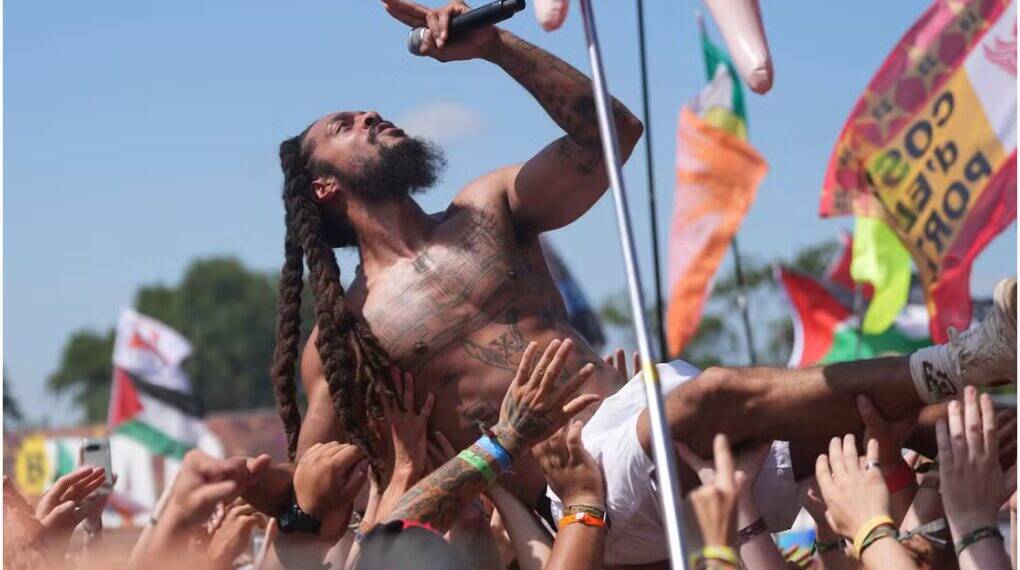The sight and sound of a Glastonbury crowd chanting “death to the IDF” was shocking, even for those familiar with the festival’s long history of political activism. As the Gaza war rages and emotions run high worldwide, the incident has ignited fierce debate in the UK about where the line lies between free expression and incitement to hatred.
The government’s decision to launch a formal investigation is not just a response to public outrage—it’s a reflection of the complex, often uncomfortable questions facing liberal democracies in times of conflict.
A Festival Stage Becomes a Flashpoint
Glastonbury has always been more than a music festival. It’s a cultural institution that prides itself on giving space to protest, dissent, and radical ideas. But when Bob Vylan led a crowd in chanting “death to the IDF,” the rhetoric crossed from political protest into language that many—across the political spectrum—see as dangerous and potentially unlawful.
The Israel Defense Forces (IDF) are not just a symbol; they are the armed forces of a democratic state, and calls for their death are easily understood as calls for violence against Israelis, many of whom are conscripted citizens. In the context of the ongoing Gaza war, such chants risk fueling hatred and deepening divisions far beyond the festival grounds.
Free Speech, Hate Speech, and the Law
Britain is rightly proud of its traditions of free speech and protest. But those freedoms are not absolute. UK law prohibits incitement to violence and hate speech, especially when directed at protected groups. The challenge is that the boundaries are not always clear-cut, especially when it comes to political speech about foreign conflicts.
Some argue that chanting “death to the IDF” is a legitimate, if extreme, form of protest against Israeli military actions in Gaza. Other Jewish groups, the Israeli embassy, and many ordinary Britons, see it as incitement to violence and antisemitism, especially when Jewish communities in the UK already feel vulnerable.
The police investigation will have to grapple with these legal and moral ambiguities. Was the chant a call to action, or just a provocative slogan? Did it cross the line into criminality, or is it protected speech in a democracy?
The BBC called the Glastonbury chants “deeply offensive,” removed the performance from its platform, and promised a review of its vetting process. The Israeli government and Jewish groups condemned the chants as “inflammatory,” warning they risk normalizing extremism.
In the US, the response was swift: the State Department is reportedly considering revoking Bob Vylan’s visas ahead of their American tour, citing policies against supporting terrorism or inciting violence. US officials and advocacy groups have also called for bans on the group’s performances, highlighting the incident as an example of rising antisemitism and extremism in public discourse.
Also Read: Netanyahu Outlines Conditions for Ending Gaza War, Says Entire Strip Will Be Under IDF Control
The Danger of Normalizing Extremism
Perhaps the greatest risk is that such incidents become normalized. When chants of “death” to any group are met with shrugs or excuses, the boundaries of acceptable discourse shift. That’s dangerous—not just for Jewish communities or Israelis, but for the health of public debate in Britain as a whole.
Condemning violence, no matter the target, should not be controversial. Protest can and should be passionate, but it must not become a license for hate.
Drawing the Line
The Glastonbury incident is a wake-up call. It’s a reminder that in times of war and polarization, the values of free speech and tolerance are tested most severely. The UK must defend the right to protest and criticize, even harshly—but it must also be clear-eyed about the dangers of rhetoric that dehumanizes and incites.
The investigation will determine whether laws were broken. But the larger question—how to maintain a culture of robust dissent without slipping into hate—remains for all of








